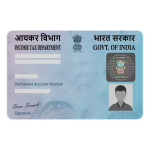Choosing a career is a significant decision that can shape the trajectory of our lives. It’s a choice that requires careful consideration, self-reflection, and exploration. With so many options available, it’s important to approach this decision with clarity and purpose. In this blog post, we will guide you through the process of choosing your career, helping you discover your passions, values, and interests to find a path that aligns with your true self.
- Self-Reflection: The first step in choosing a career is to engage in self-reflection. Take the time to understand your strengths, weaknesses, and interests. Consider your natural talents, skills you enjoy using, and areas where you excel. Reflect on your values, the things that are most important to you in life, and how your career can align with those values. This introspection will provide a solid foundation for exploring career options.
- Identify Your Passions: Passion is a driving force that can lead to fulfillment in your career. Think about the activities or subjects that truly ignite your enthusiasm. What do you enjoy doing in your free time? What topics do you find yourself constantly reading or learning about? Identifying your passions will help you narrow down career fields that align with your interests and can bring you long-term satisfaction.
- Research Career Options: Once you sense your strengths and passions, it’s time to explore different career options. Conduct thorough research on industries, job roles, and the skills required for each. Look for growth opportunities, work-life balance, and potential salary ranges. Consider talking to professionals in fields of interest to gain insights into their experiences. Attend career fairs, workshops, or seminars to learn more about various industries and network with professionals.
- Seek Real-World Experiences: Theory alone cannot provide a complete understanding of a career field. Seek opportunities to gain practical experience through internships, part-time jobs, or volunteering. This hands-on experience will give you valuable insights into the day-to-day aspects of different professions and help you determine if they are a good fit for you.
- Consider Transferable Skills: While exploring different career paths, identify your transferable skills. These are skills that can be applied across various industries and roles. For example, skills like communication, problem-solving, leadership, and adaptability are highly valuable in any career. Recognizing your transferable skills can open up a wider range of career options for you to consider.
- Set Realistic Goals: As you narrow down your options, set realistic goals for your career. Break down your long-term goals into smaller, achievable steps. Consider the education or training required, the timeline for acquiring the necessary qualifications, and the potential challenges along the way. Setting goals will give you direction and motivation as you progress toward your chosen career path.
- Embrace Lifelong Learning: Choosing a career is not a one-time decision. The world is constantly evolving, and new opportunities and industries emerge. Embrace the concept of lifelong learning by staying curious, seeking continuous personal and professional development, and being open to new possibilities. This mindset will allow you to adapt and grow with your chosen career.
Conclusion: Choosing a career is a journey that requires self-reflection, research, and exploration. By understanding your strengths, passions, and values, and by gaining practical experience, you can make an informed decision about your future. Remember, a career should be a source of fulfillment and align with your true self. Embrace the process, be open to new opportunities, and trust that by following your heart and mind, you will find a path that leads to a fulfilling and rewarding career.





